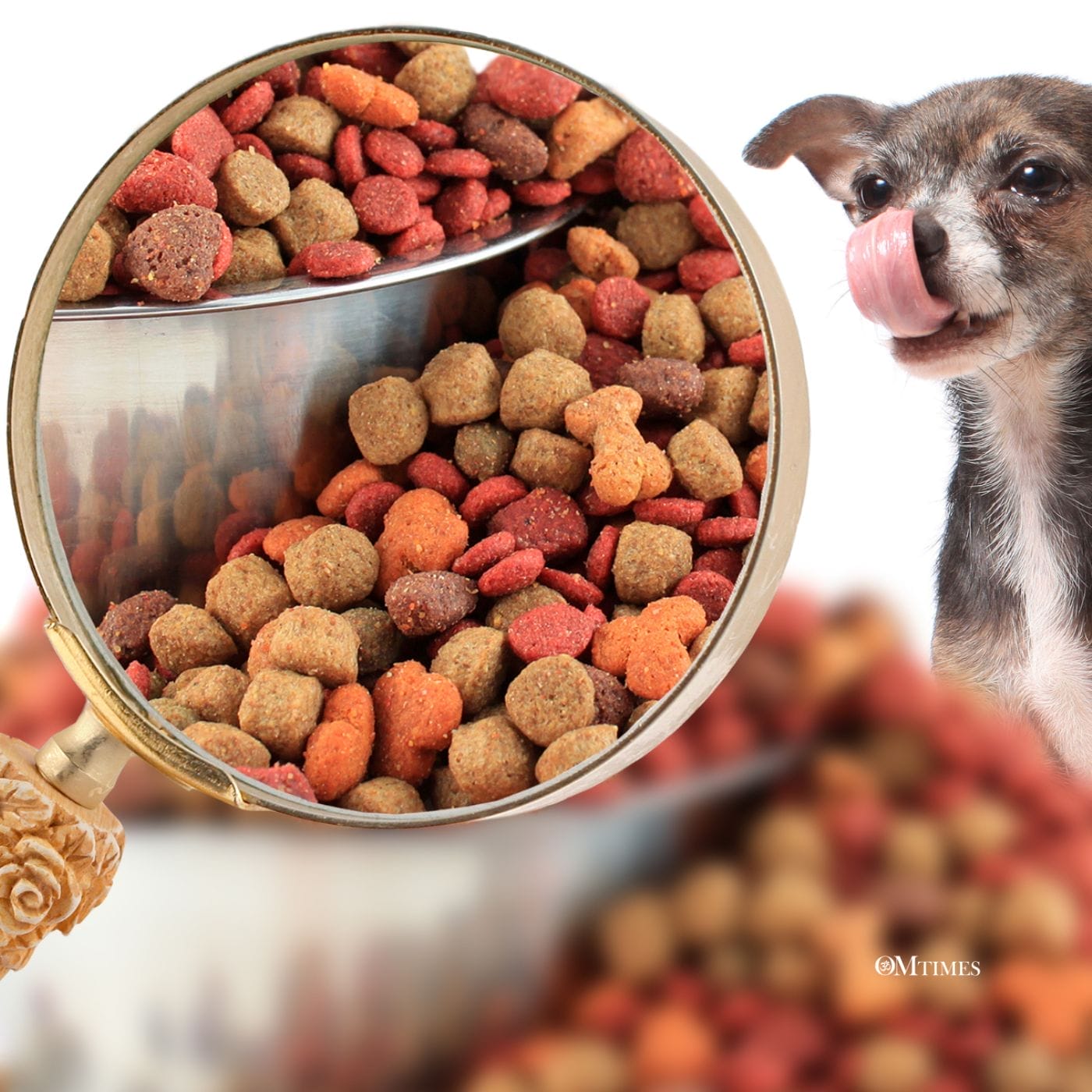The Evolution of Pet Nutrition

Discover the evolution of pet nutrition and unlock the secrets to enhancing your pet’s vitality and well-being.
From Fur Children to Foodies: The Evolution of Pet Nutrition – Superfoods to Keep Your Pets Optimally Healthy
By Dr. Judy Morgan, holistic veterinarian and author of “Yin & Yang Nutrition for Dogs“
Pets are important members of the family, often considered as “fur children” and treated as such. For aging Baby Boomers like me, they help fill the empty nest once our children move out on their own. For millennials, pets are companions while careers and life experiences take precedence before settling into family life with children. Because pets have moved into the bed, are taken on family vacations, and occupy a central role in family dynamics, pet owners have become more acutely aware of the quality of food being added to the bowl at meal times.
 Current human food trends include incorporating organic, grass-fed, chemical-free ingredients whenever possible; these trends are spilling over into the pet world. Pet food manufacturers are very aware of these trends, resulting in the appearance of new companies that appeal to this audience. However, not everyone can afford to feed complete, prepared diets that fall into this category.
Current human food trends include incorporating organic, grass-fed, chemical-free ingredients whenever possible; these trends are spilling over into the pet world. Pet food manufacturers are very aware of these trends, resulting in the appearance of new companies that appeal to this audience. However, not everyone can afford to feed complete, prepared diets that fall into this category.
There are simple food hacks that any pet owner can add to the processed meals that can improve health and longevity with increased energy and vitality. Some of my favorite Pet Nutrition “Superfoods” are:
Pet Nutrition – Superfoods
Sardines – Fresh, frozen, or canned sardines can be added to any meal. I have six dogs that weigh between fifteen and twenty pounds. I generally split two cans of sardines in water among the pack twice or thrice weekly. Sardines provide omega-3 fatty acids and CoenzymeQ10, contributing to heart, brain, joint, kidney, and skin health. They help support a healthy immune system. Because these fish are small, they have lower mercury content than large fish, decreasing the chances of heavy metal toxicity. The bones are soft and easily digestible, providing a source of added calcium for strong bones and teeth.
Blueberries and Cranberries – These small berries are a powerhouse of Vitamin C and other antioxidants, which help decrease inflammation throughout the body. Cranberries have the added benefit of an ingredient called A-type proanthocyanidins (PACs), which interfere with bacteria’s ability to adhere to the bladder wall. This ingredient is especially helpful for pets prone to recurrent urinary tract infections. For best absorption, berries should be crushed or cooked, but fresh berries make awesome treats. Depending on the cat’s or dog’s size, one to four tablespoons per day will provide the necessary nutrients.
Reishi, Maitake, or Shiitake mushrooms – While many websites say that mushrooms are toxic for animals, they are really referring to poisonous mushrooms. Medicinal mushrooms, on the other hand, provide incredible health benefits. (White button mushrooms do not provide the same elements.) These fungi provide anti-viral, anti-bacterial, and immune-boosting properties to the body. They are touted for providing cancer-fighting, liver-protective, and allergy-reducing effects. They also help stabilize blood sugar in diabetic pets. Mushrooms are most effective when gently cooked. I like to gently sautee’ them in coconut or olive oil. Mushroom extract capsules are also widely available.
Pumpkin – This superfood can be added as fresh or canned pumpkin (not pumpkin pie mix). If using fresh pumpkin, it will need to be chopped and cooked to increase digestibility. Pumpkin provides a great source of soluble and insoluble fibers, which are important for fermentation and proliferation of healthy bacteria in the large intestine. Healthy gut flora improves immune system function. Pumpkin also provides a great source of Beta-carotene, which converts to Vitamin A (dogs perform this conversion much higher than cats), which is necessary for eye health and immune system function. One to four teaspoons of pumpkin daily is plenty to achieve its health benefits.
Eggs – Eggs are packed with healthy protein, fats, and vitamins. The yolk provides a healthy fat source that is high in fat-soluble vitamins A, D, E, and K. Many processed pet diets are deficient in these vitamins, as oxidation occurs during processing and storage, degrading the vitamins. Unlike people, pets cannot convert sunlight into Vitamin D, requiring dietary sources of this vitamin. Pets with heart disease have been shown to be deficient in Vitamin D. The egg white provides high-quality protein, along with some B vitamins and potassium. Hard-boiled eggs make a wonderful treat. Egg shells can be ground and added to meals to provide an extra calcium source. Generally, one-half to one egg per day is recommended.
Dark leafy greens – Kale, spinach, collard greens, parsley, dandelion greens, and mustard greens are packed with chlorophyll, fiber, and vitamins. These greens are particularly helpful in maintaining liver health and may help prevent cancer. These greens need to be processed in a food processor or cooked to break down the plant cell walls and enhance absorption and usefulness in the body. Anywhere from one teaspoon to one-quarter cup of pureed, cooked greens can be added to the daily diet.
When making additions to a commercially prepared diet, be sure to consider the extra calories that are being added to the bowl. While ingredients such as dark leafy greens and pumpkin may actually help overweight pets move toward an ideal weight, ingredients such as eggs and sardines will add extra calories that must be included in daily feeding calculations. One can of sardines in water or one egg will provide between 75 and 100 calories. The average calorie requirement for small dogs and cats is approximately thirty per pound per day, while medium and large dogs require more than twenty calories per pound. Activity level will play a role in caloric needs; don’t forget to factor that in.
Overall, pets will do fine sharing healthy food ingredients with their humans. Avoid grapes, raisins, Macadamia nuts, onions, yeast doughs, and any foods containing xylitol, which are toxic for our furry friends.
Click HERE to Connect with your Daily Horoscope on OMTimes!
Visit Our Astrology Store for Personalized Reports
About the Author
Dr. Judy Morgan, the 2018 Woman of the Year in the Women in the Pet Industry Network, is a certified and accredited veterinary acupuncturist, chiropractor, and food therapist. Based in southern New Jersey, she currently operates two award-winning veterinary hospitals. She is a sought-after speaker at dog shows, pet expos, and veterinary conferences, as well as a best-selling author of four books on holistic pet care and feeding, including the recently released title Yin & Yang: Nutrition for Dogs, a holistic cookbook for pets that encourages the healing power of whole foods. Her weekly Naturally Healthy Pets radio show can be heard on DreamVisions7Radio. She can be reached at www.drjudymorgan.com
OMTimes is the premier Spiritually Conscious Magazine. Follow Us On Facebook, Twitter, Instagram, Linkedin, Pinterest, and Youtube
OMTimes Magazine is one of the leading on-line content providers of positivity, wellness and personal empowerment. OMTimes Magazine - Co-Creating a More Conscious Reality






